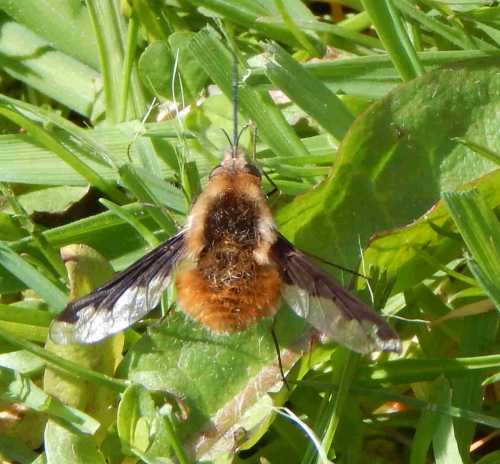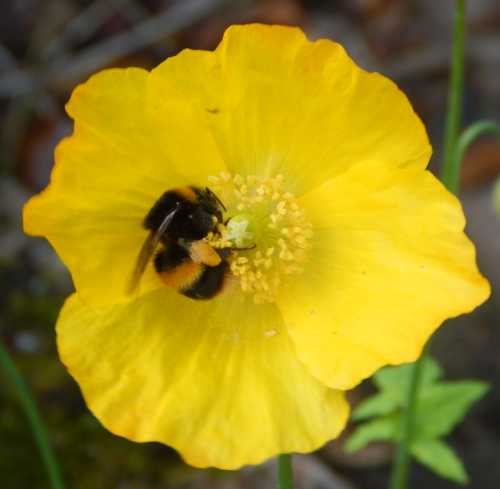Help - I Have Found A Bumble Bee That Is Curled Up And Grooming
I received the following query from a lady in the UK:
"Hi there, I've found a common UK bumble bee that's writhing and rubbing at herself, hunched over in a ball.
I cannot see any obvious mites or injuries, and she has all her limbs.
Her face looks wet, and maybe sticky. I've been unable to find any information on your website as to what may be wrong with her, and I was just wondering if you could suggest anything I could do to help her.
Thank you!"
Unfortunately, I didn't open this email until the day after. As soon as I read it, I suspected poisoning, but I replied to the lady anyway, though I felt it might be too late.
Unfortunately it was. In truth, I suspect my response may not have helped anyway, but I add it here, in the hope that it may be helpful to other visitors.
Please read the entire page.
Points to note from this particular situation:
- I suspect (but I do not know for sure) that this is a case of some kind of poisoning - possibly accidental.
- The rubbing - actually, probably grooming - suggest to me that the bumble bee may be trying to remove something from its coat - a toxic substance of some type.
- The wet face and curled up position, suggest to me that the bumble bee ingested the poison already (hence, the suggested course of action (below) probably would not have worked in this scenario).
Is it possible to help a bee writhing about?
If a bee is seen simply grooming itself, leave it alone - this is normal insect behaviour.
Grooming helps insects to clean away dirt, parasites, mites and bacteria. In bees, they will also 'groom' pollen from their hairy bodies into pollen baskets.
So Is There Nothing I Can Do?
This is a real long shot, but if you come across this situation, nevertheless it will cost you nothing to try and help, and only a few minutes of your time.
Try dripping clean water onto the bee, until it is completely soaked. Allow it to dry off on its own.
However, please do not be hard on yourself if the bee dies. You have done all you can.
In the case of poisoning, I recommend putting the dead body of the bee in the dustbin, to ensure no other creatures eat the bee (such as a bird), and ingest the poison (i.e. secondary poisoning).
If a poisoning may have occurred due to major spraying of insecticides on public property, and many dead insects have been found in the same place, find out whether you have cause to report the incident to an official body, in which case, retain evidence of the event for investigation if necessary.
Prevent Poisoning
If you happen to know of anyone who is spraying poisons in the area - especially if it is your local council - you could have a tactful, friendly word. Outline the problems and ask them not to do it again.
If you suspect it is something to do with your own (accidental) actions, then simply learn from it. That's all you can do in such a circumstance. You could also warn others to prevent them making a similar mistake.
If you see a large number of poisoned bees, check whether your country/region has a scheme for reporting bee poisonings, gather specimens - quite a few - and follow the instructions and advice for sending bees to the appropriate analytical authorities. You may also wish to keep a few in case the first sample goes missing.
For more scenarios, see my link: help with bees.
If you found this page helpful or interesting, I'd really be grateful if you would share it with others - if not this page, perhaps another, such as Gardening For Bees.
Thank you so much :) .

